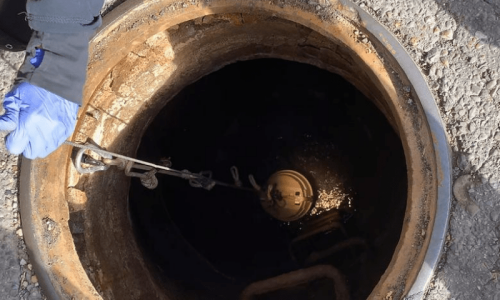KARACHI, Dec 30: As a semblance of calm returned to the city following the horrific cycle of violence that began after former prime minister Benazir Bhutto’s assassination on Thursday, there was a question mark over the availability of produce, items of daily use and fuel. Crucially, live-saving drugs remained in short supply.
Considering the interrelation of fuel, transport, produce and other goods, the unavailability or limited availability of petrol, diesel and CNG in the city had a domino effect and prevented the delivery of fruit, vegetables and other essential items citywide. Though Karachi remained largely peaceful on Sunday, goods transporters were hesitant to ply their vehicles because of the uncertainty prevailing following the acts of arson that were earlier perpetrated on a massive scale across the metropolis and beyond.
However, it seemed as though the situation might normalise by Monday as petrol pumps had started opening on Sunday, although this reporter saw long rows of cars and motorcycles at the fuel stations that did open in several areas of the city waiting for their turn to fuel up.
Abdul Sami Khan, Chairman of the Pakistan Petroleum Dealers’ Association, told Dawn that he had just attended a meeting with the DCO in this regard and confirmed that the situation would be normalized by Monday.
But perhaps the most disturbing situation emerged when the alarm was sounded about the lack of availability of life-saving drugs due to the closure of markets.
“A few medical stores have opened, however, life-saving drugs are largely unavailable in the city. Cardiac patients, diabetics and others need medicines daily and complications may arise if medical stores are not opened immediately. We communicated our concerns to the provincial health minister in this regard on Sunday,” Dr Qaiser Sajjad of the Pakistan Medical Association told Dawn.
“The other issue is that because of the lack of transport, doctors and nurses have been unable to reach hospitals. Gynae patients are particularly affected. We ask the government to provide protection to emergency facilities against vandalism. Moreover, we appeal to the people to control their anger and refrain from resorting to violence,” he said.
Mateen Siddiqui, Chairman of the Fruit and Vegetables Exporters’ Association, told this reporter that the city’s wholesale produce market, known as the New Sabzi Mandi, remained closed on Sunday due to the unavailability of fresh produce being transported into the city. “Though the market remained closed during the day, we expect deliveries from the neighbouring goths by tonight (Sunday night),” he added.
Bachat bazaars
The city government has established 12 bachat bazaars in various areas of the city to help supply items of daily use to the people, says APP.
These bazaars have been set up in DHA (Phase-VIII), Eidgah Ground Korangi, Malir (Kala Board), Sakhi Hasan (2-K’s last stop), North Karachi (Two-minute Chowrangi), in Gulshan-i-Iqbal near Disco Bakery, Alladin Park and opposite the Urdu University, Baldia (Ittehad Town), Gulberg (Azizabad), Lines Area and Site (Habib Bank Chowrangi).
Karachi Transport Ittehad chief Irshad Bukhari told Dawn that no public transport plied the roads of the metropolis on Sunday because of fears of vandalism.
“During the unrest 250 of our vehicles have been burnt. However, if we are provided police protection, hopefully we will start operating our vehicles by Monday,” he said.
Saifur Rahman, Vice-President of the Karachi Goods Carriers’ Association, said that although a convoy of vehicles, with protection provided by the Rangers, had made it to the city by Sunday afternoon, no vehicle had left Karachi as countless trucks were standing idle at the city’s truck-stands waiting to travel up-country.
“Whole rows of trucks have been burnt on the highways. There is a great deal of uncertainty among the transporters, as well as a lack of coordination with the authorities. However, the government has said that they would provide us protection and none of our vehicles were burnt on Sunday,” he said.
The situation regarding poultry was also quite grim as Abdul Maroof Khan of the Poultry Association told Dawn that because of the scarcity of fuel and the closure of factories, feed was unable to reach the farms. He also said there was still a strong element of fear among the transporters, while adding that no one from the government had got in touch with his association about providing protection. “Right now I am on the National Highway and it is almost deserted,” he said.
Shaukat Mukhtar of the Karachi Dairy Farmers’ association also echoed fears that a lack of fodder for the animals would have a debilitating effect on milch animals.
“Although the supply of milk to retailers has resumed, the crisis of providing fodder to the animals persists. Stocks will be exhausted probably by this (Sunday) evening and even if vehicles leave Punjab tomorrow, it’ll take them at least two days to get here. Plus, nearly all of Sindh is closed, and all our supplies come through there. We don’t know how to tackle the situation,” he added.














































Dear visitor, the comments section is undergoing an overhaul and will return soon.